Women of resistance: Palestinian women martyrs whose bodies are held captive by Israel
By Press TV Website Staff
On Tuesday, coinciding with the International Day for the Retrieval and Liberation of the Bodies of the Martyrs, Dismantle Damon, a global campaign supporting Palestinian women prisoners, released details about those whose bodies remain held by the occupation regime.
According to Samidoun, a Palestinian prisoner solidarity network, there are currently 552 Palestinian martyrs whose bodies are kept in morgues and cemeteries across the occupied territories.
This includes 256 in "numbers cemeteries" and 296 imprisoned in morgues and cold storage since the apartheid Tel Aviv regime reinstated the policy of imprisoning bodies in 2015.
Among them are 9 female martyrs, 32 martyrs from the prisoners’ movement, 55 children under the age of 18, 5 martyrs from the 1948 occupied territories, and 6 martyrs who were Palestinian refugees in Lebanon, according to Samidoun.
However, several other reports estimate the actual number of bodies held by the Israeli regime to be around 1,500, many of whom died due to brutal torture and abuse at the Sde Teiman torture facility.
The nine women martyrs whose bodies have been held by the Israeli regime include Bayan Mohammed Jumaa Salama Eid, Asmaa Daraghmeh, Maimouna Harahsha, Labiba Sawafta, Wafa Baradei, Dalal al-Mughrabi, Wafa Idriss, Dareen Abu Eisheh, and Hanadi Jaradat.
Bayan Mohammed Jumaa Salama Eid
Bayan Mohammed Jumaa Salama Eid was killed by regime forces in the Tulkarem refugee camp in the occupied West Bank on July 23, 2024, following a military raid that lasted several hours.
The 22-year-old was among five Palestinians killed in a drone strike that targeted their tent, including her 50-year-old mother, Iman Mohammed Jumaa.
The occupation forces later abducted her body after attacking the camp with bulldozers and have till date refused to return it to her family.
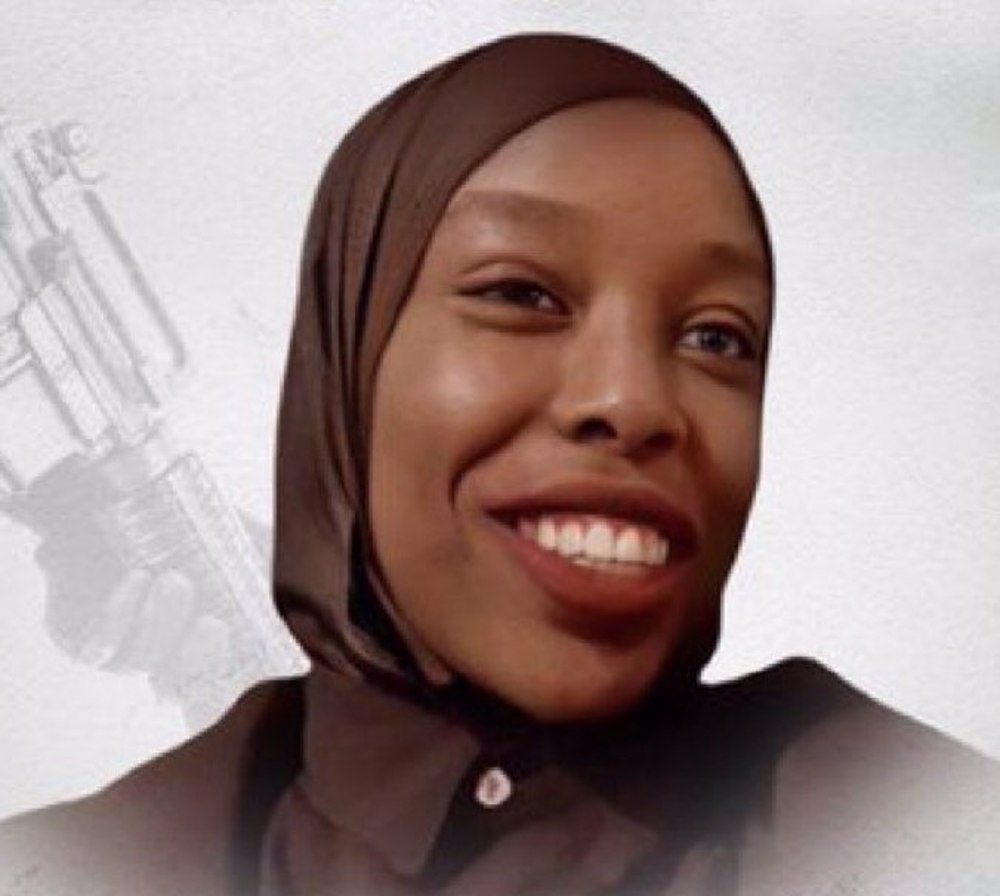
Maimouna Abdul Hamid Harasheh
Maimouna Abdul Hamid Harasheh, from the village of Bani Naim, east of al-Khalil in the occupied West Bank, was killed on April 24, 2024, after being shot in the head at the Beit Anun checkpoint.
The 20-year-old university student, who was preparing for exams, was shot dead at what has come to be known as the "checkpoint of death."
After being deliberately targeted, Israeli forces left Harasheh to bleed to death and then abducted her body, which remains in a military morgue.
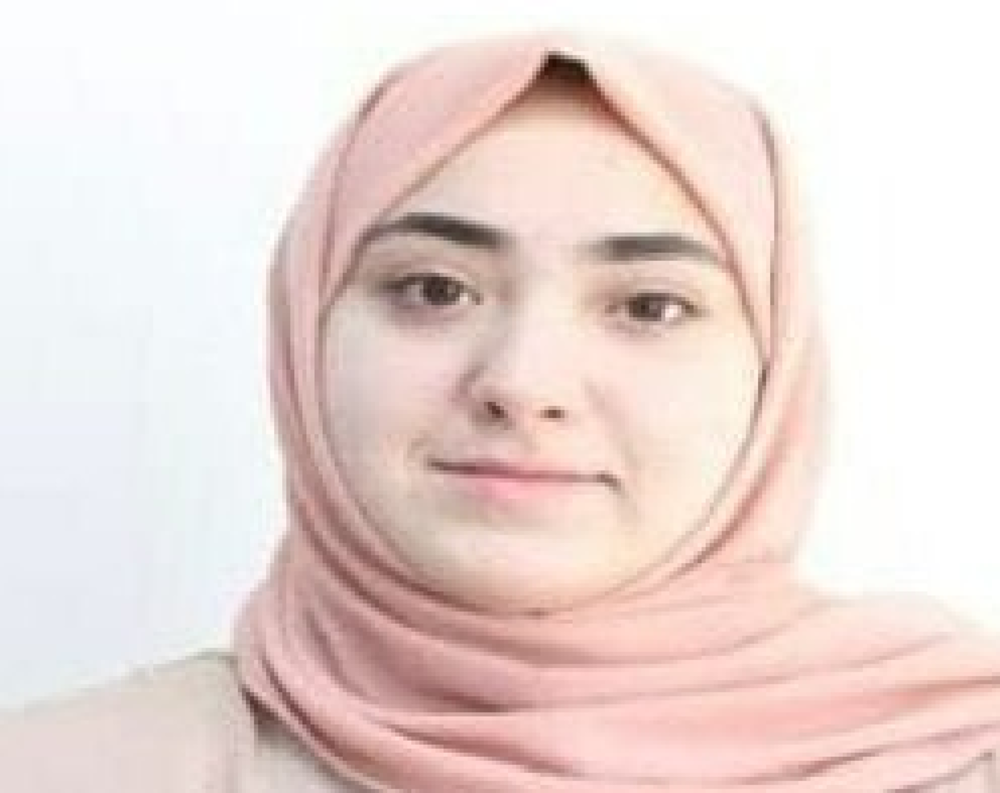
Asmaa Imad Daraghmeh
Asmaa Imad Daraghmeh was killed by Israeli regime forces on April 8, 2024, after being deliberately shot at the Tayasir checkpoint east of Tubas in the occupied northern West Bank.
The 17-year-old Daraghmeh was targeted from a distance of 10 meters (33 feet) despite posing no threat to the occupation forces.
As she lay bleeding on the street, the regime forces prevented ambulances from assisting her and watched idly as she died. Later, they took her body with them.
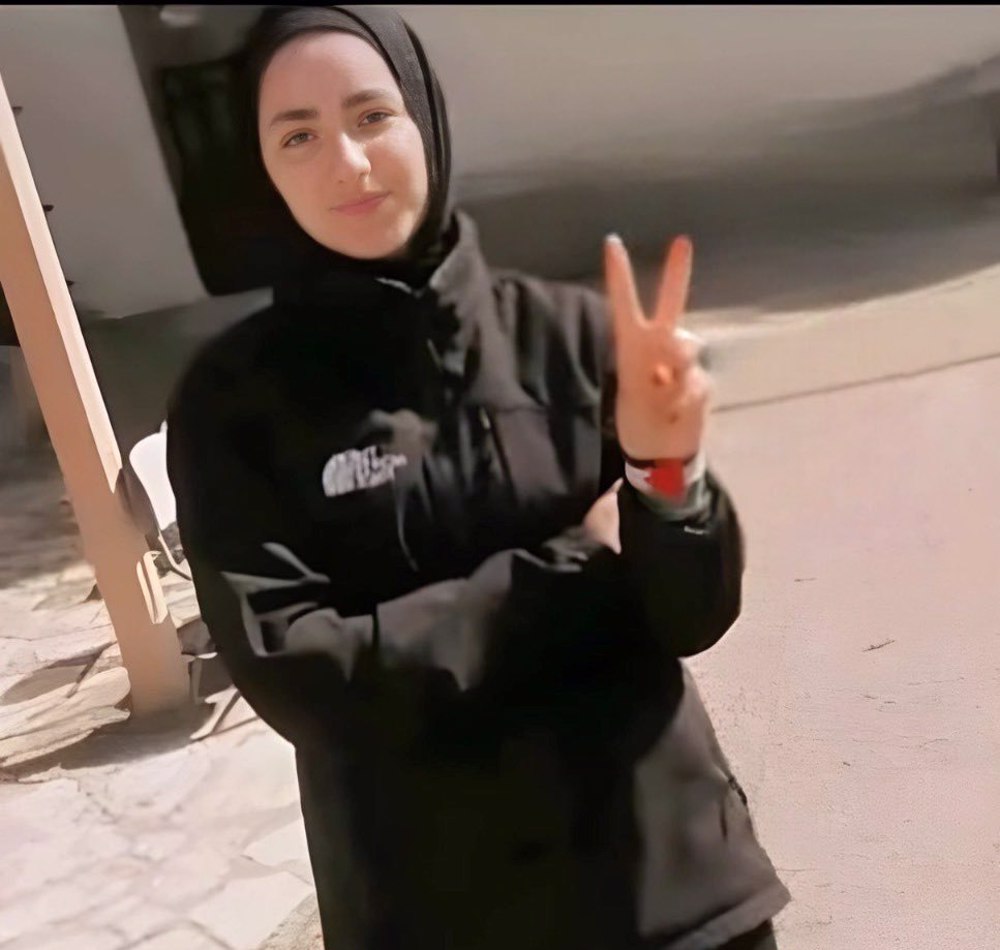
Wafa Abdul Rahman Baradei
Wafa Abdul Rahman Baradei was killed by Israeli occupation forces on May 19, 2021, after being shot by an armed settler near the "Kiryat Arba" settlement in the southern occupied West Bank.
The settler falsely claimed that the 34-year-old Baradei, from the al-Hallajil area near the village of Bani Naim in the Al-Khalil district, was carrying a revolver and intended to carry out an operation at the settlement.
Following her murder, the occupation forces invaded her village, ransacked her home, and abducted her body, which they have so far refused to return to her family.
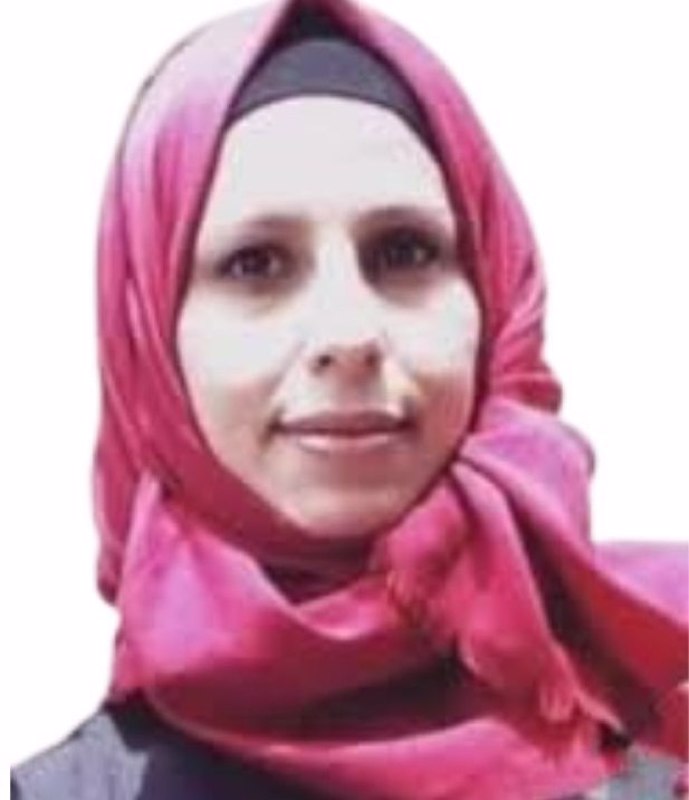
Hanadi Tayseer Jaradat
Hanadi Tayseer Jaradat was killed on October 4, 2003, in a resistance operation she carried out at the Maxim restaurant in Haifa, occupied Palestine.
The 28-year-old law student at Yarmouk University in Jordan was a member of the Palestinian Islamic Jihad resistance movement, alongside her brother Fadi and her cousin Salah, both of whom were killed by a Zionist settler in Jenin.
Before the operation, Jaradat declared her intention to become the sixth female martyr who would turn her body into “shrapnel” to kill Zionists. Her body remains unretrieved.
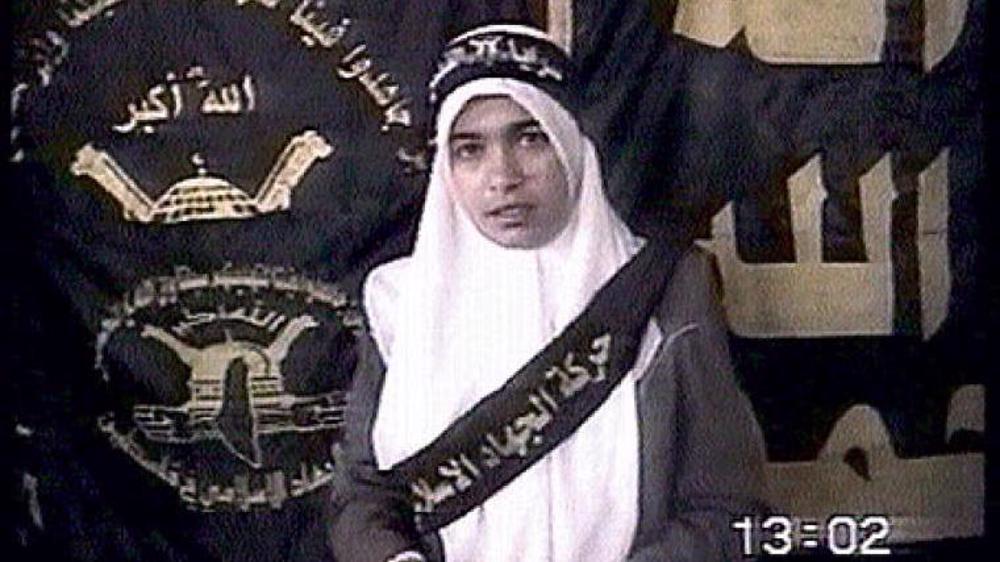
Dareen Abu Eisheh
Dareen Abu Eisheh was killed on February 27, 2002, after carrying out a resistance operation as part of the Al-Aqsa Intifada, recording her place in the annals of Palestinian history.
The 22-year-old student of English literature at An-Najah National University and an Islamic Bloc activist was known for her political activism and participation in anti-occupation demonstrations.
She first approached Hamas’ armed wing, the al-Qassam Brigades, and offered to be part of their operations, but the request was turned down as armed resistance was deemed the domain of men.
Later, she approached the Al-Aqsa Martyrs Brigades of Fateh, who agreed to arm her to carry out an attack at the Maccabim checkpoint between occupied Jerusalem and Tel Aviv.
“I wanted to be the second woman to carry out a martyrdom operation and take revenge for the blood of the martyrs and the destruction of the sanctity of al-Aqsa mosque,” she said in a recorded message.
She was later hailed as the "daughter of all factions,” while the occupation refused to return her remains, burying her in the "numbers cemetery.”
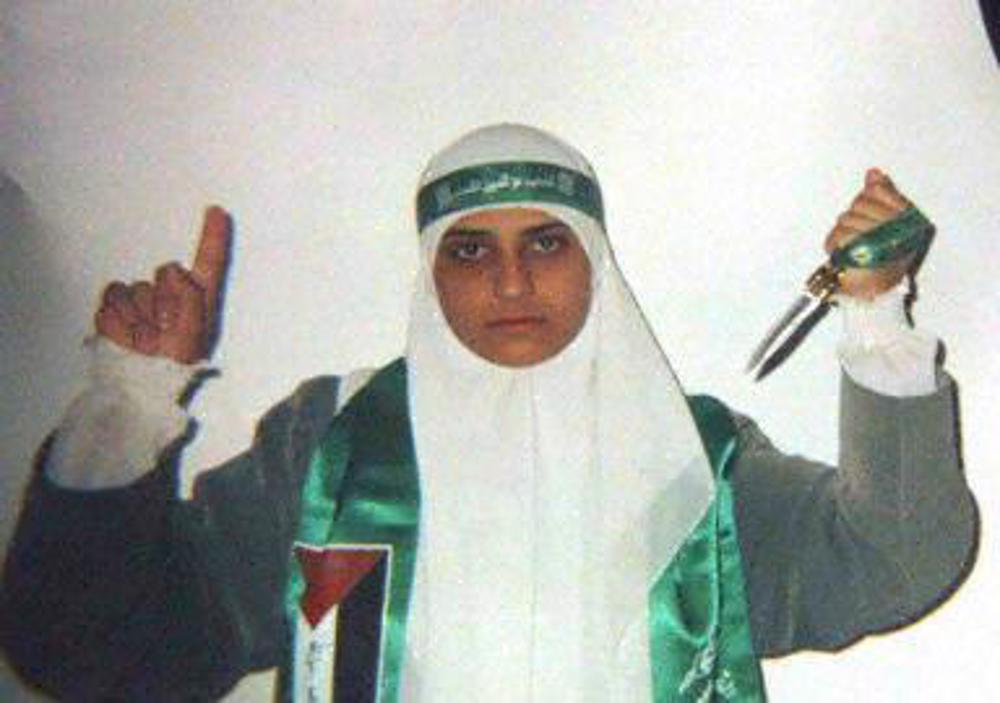
Wafaa Idris:
Wafaa Idris became the first Palestinian female martyr on January 21, 2002, after carrying out a martyrdom operation against Israeli occupation forces in Tel Aviv.
The 28-year-old was a Fatah activist and refugee from the al-Ama'ri refugee camp in Ramallah, occupied West Bank.
Idris, who served as part of Fatah’s women's committee during the first intifada, later trained as a medic and volunteered with the Palestinian Red Crescent Society.
She eventually joined the Al-Aqsa Martyrs' Brigades and carried out an operation in central Tel Aviv. Her remains were buried in the "numbers cemetery."
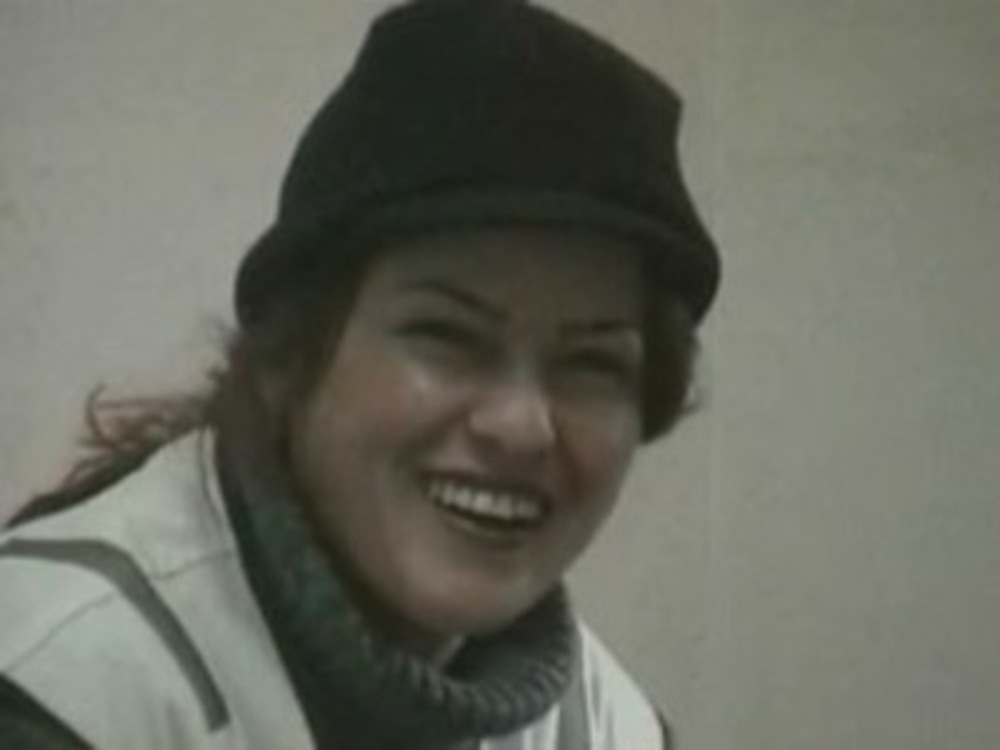
Labiba Faze’ Sawafta:
Labiba Faze’ Sawafta was killed when Israeli forces opened direct fire at her at the Hamra checkpoint in the northern occupied Jordan Valley, occupied West Bank.
The 43-year-old Palestinian woman from Tubas was accused of attempting a stabbing operation in retaliation for the Israeli regime’s war against Palestinians in Gaza.
She was allowed to die and her body was abducted by the regime forces.
Dalal al Mughrabi
Dalal al Mughrabi, an iconic figure in the Palestinian resistance movement, was born in the Sabra refugee camp in Lebanon to a Palestinian father and a Lebanese mother.
She trained as a nurse and joined Fatah and the Palestinian liberation movement in 1975 at the young age of 16. Mughrabi led a group of 11 Palestinian and Lebanese fighters on a mission to enter occupied Palestine and attack the regime’s war ministry or Knesset.
In a classic case of the Zionist ‘Hannibal Doctrine’, the bus that the Palestinian fighters had seized was blown up by the regime forces from a helicopter gunship, killing 38 settlers who had been held captive and 9 resistance fighters, including Mughrabi.
Her body was supposed to be returned to her family in 2008 as part of a prisoner swap deal with Hezbollah, but the regime claimed they could not "locate her body" in the "numbers cemetery" and sent a coffin containing stones instead.
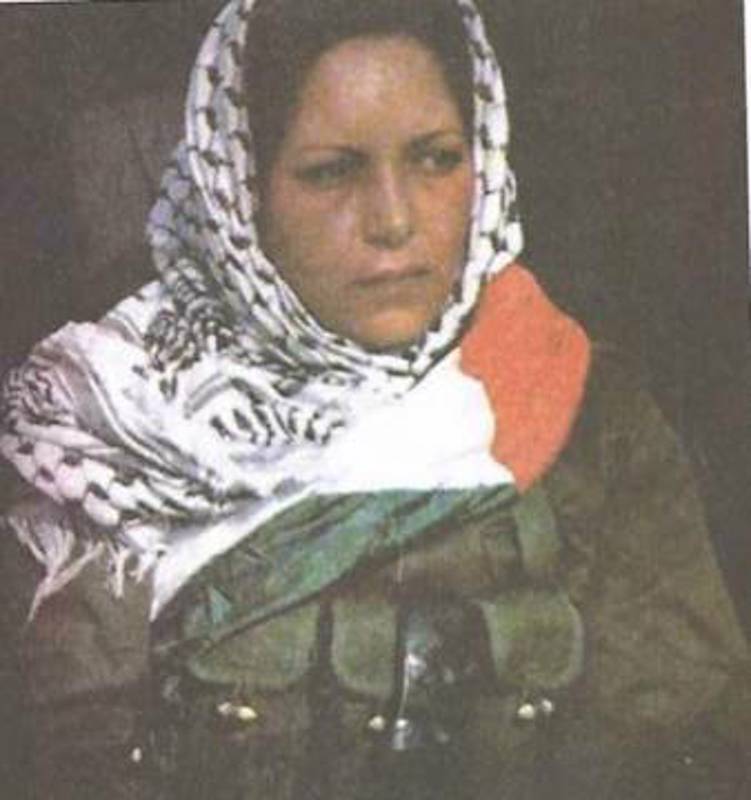
Meanwhile, amid the genocidal war on Gaza, a total of 11,207 women have been killed since October 7, 2023, and thousands more are still trapped under the rubble and unaccounted for.
Most of them were educated young women with higher education degrees and big dreams.
The total death number from the Israeli-American genocide in Gaza has now risen to 40,500, 69 percent of them children and women, according to the Palestinian health ministry.
VIDEO | Iran's game changing retaliation boxes- part 1
VIDEO | Iran's game changing retaliation boxes- Part 2
VIDEO | Palestinian widow raises three kids in Gaza as her husband killed by Israel
Palestinian teen killed as raids and settler violence intensify across West Bank
Iran’s layered arsenal primed to deter – and decimate – US warships in Persian Gulf
Iranian commander dismisses US military buildup in West Asia as ‘theatrical gesture’
Trump ‘curious’ why Iran hasn’t ‘capitulated’ despite massive US military buildup: Witkoff
Hawkish US senator pushes Trump to ignore aides, press ahead with war against Iran


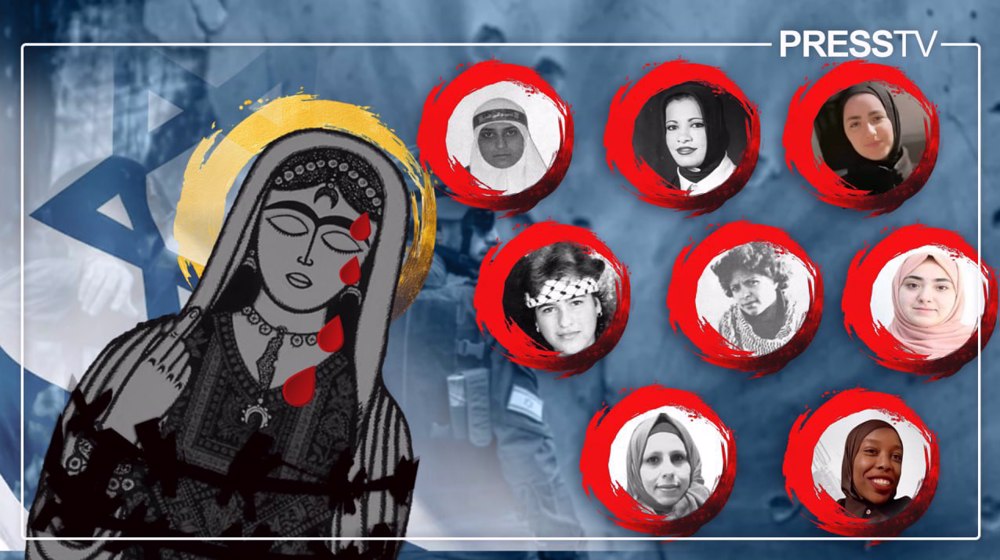

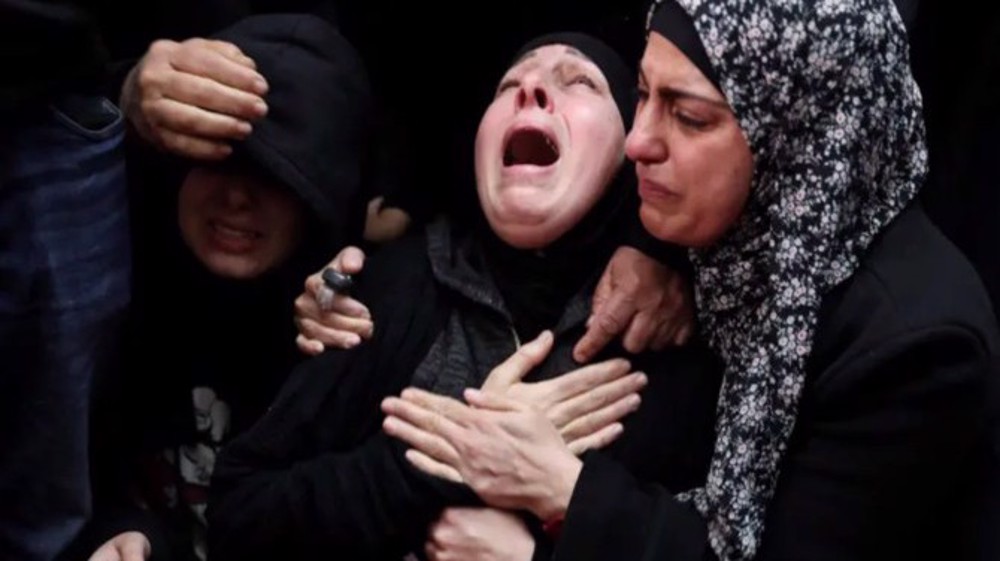
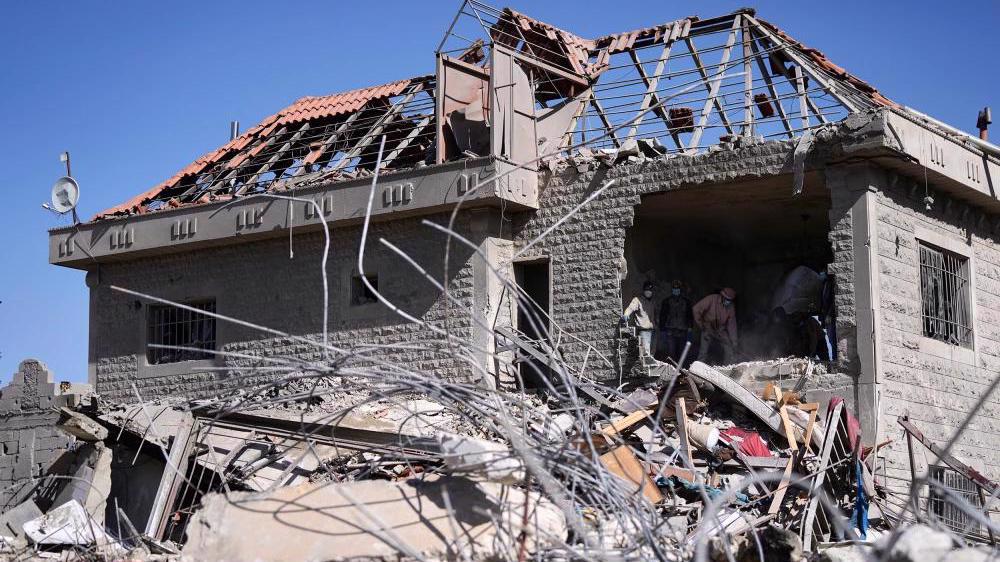



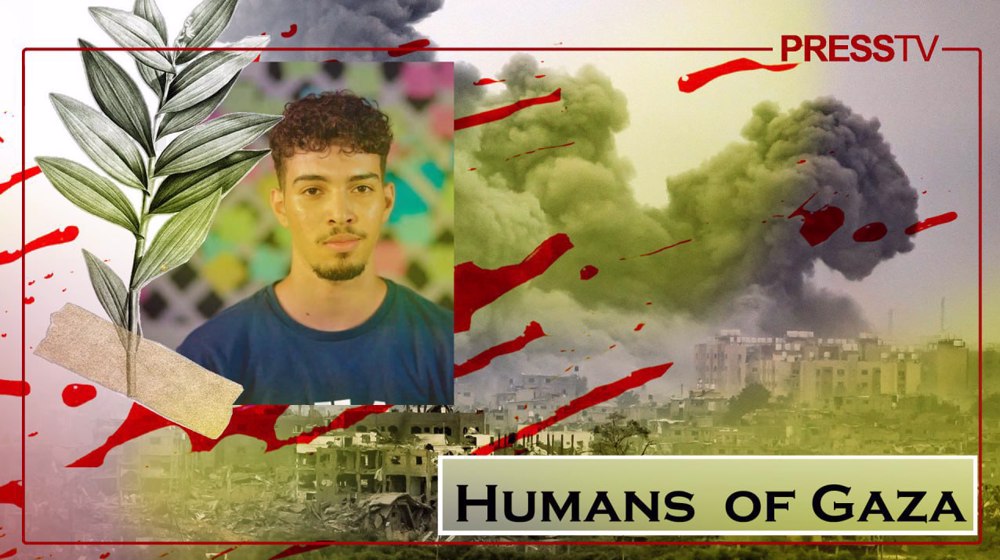
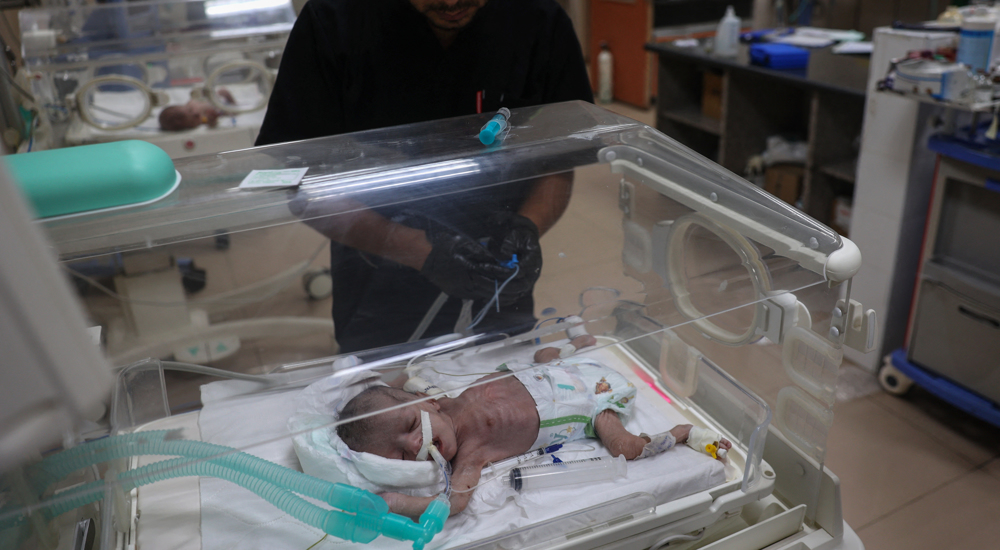
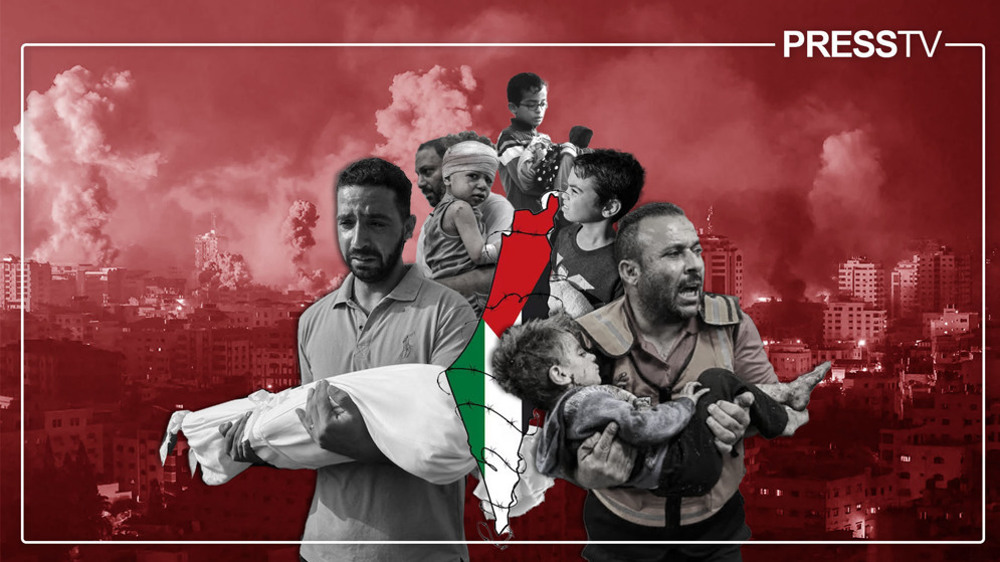
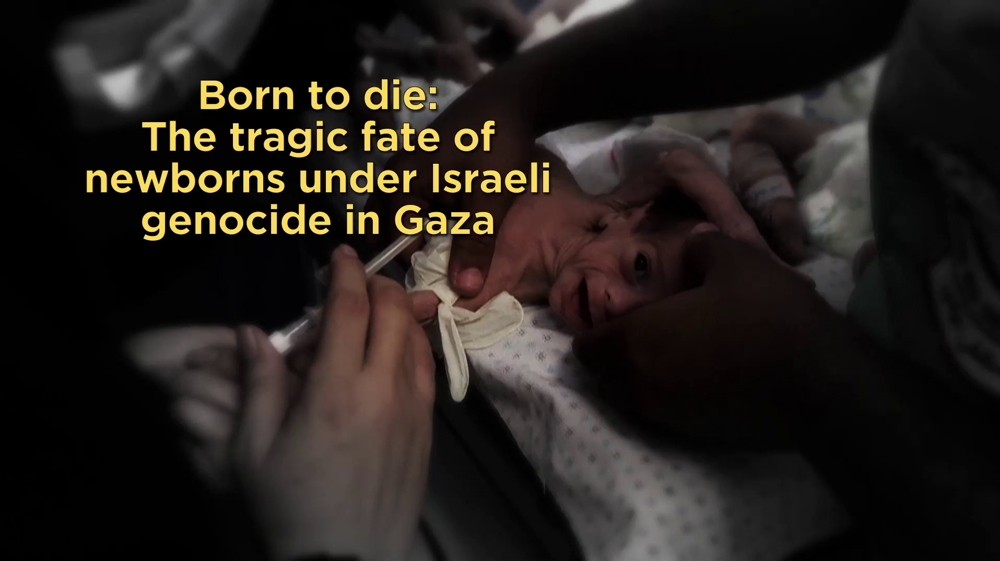
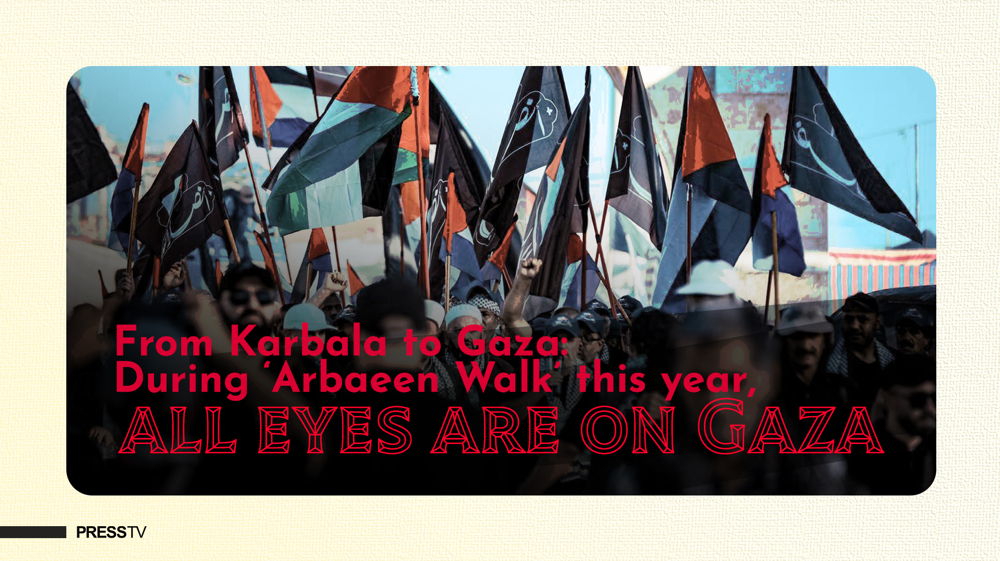

 This makes it easy to access the Press TV website
This makes it easy to access the Press TV website